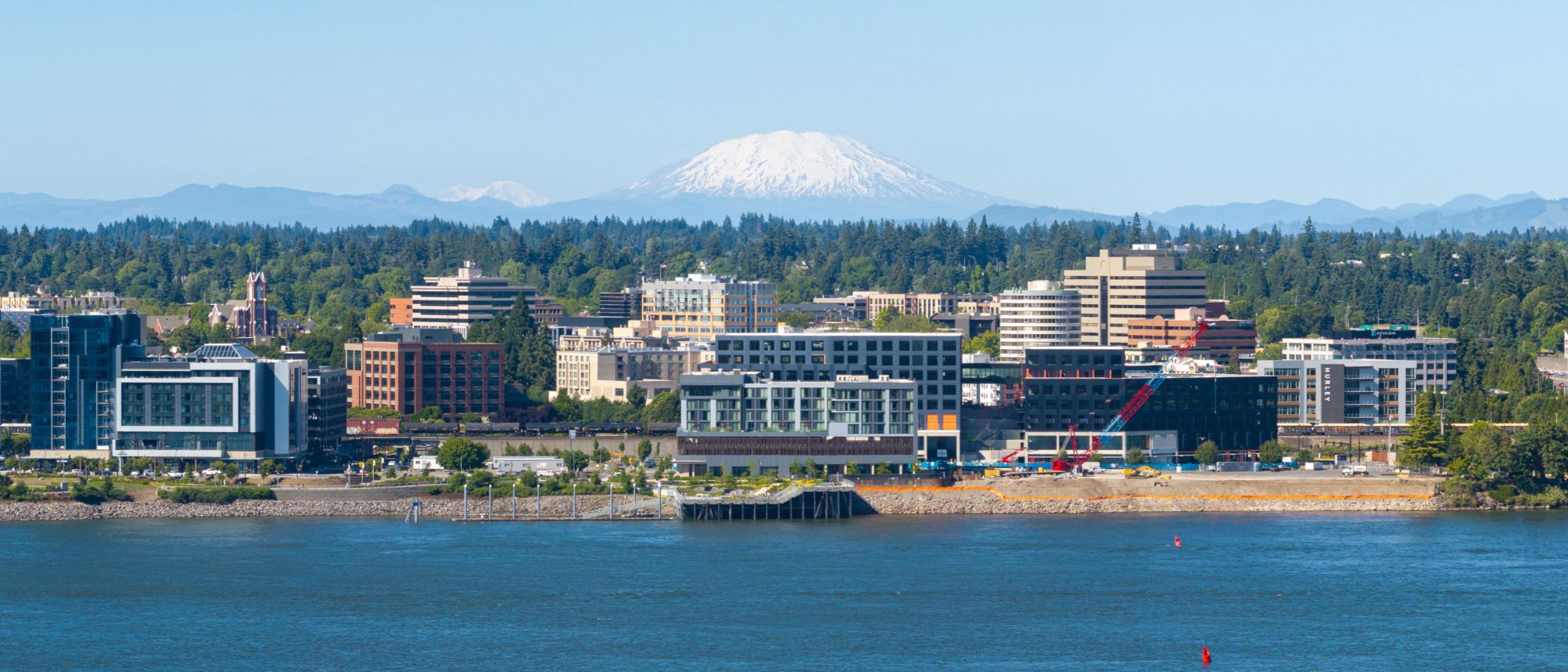The Cost of Living in Vancouver WA 2025: A Fun and Informative Breakdown
The Cost of Living in Vancouver WA 2025: A Fun and Informative Breakdown
Well, hello there! Welcome to 2025, where inflation is still doing its thing, eggs cost more than your first car, and Vancouver, WA remains one of the best places to live—if you can afford it.
Let’s break down what it really costs to live here, from housing to groceries, utilities, and even the dreaded gas prices. I promise to keep it informative but also fun, because who wants a boring cost-of-living report? Not me.
Housing: The Elephant in the Room
Let’s rip off the Band-Aid: housing is expensive. It’s the #1 thing that’s going to hit your wallet, and it’s been on a steep climb. Back in 2020, the median home price in Vancouver was about $382,000—not cheap, but reasonable. Fast forward to 2025, and that number has skyrocketed to $539,000, which is a 41% increase in just five years. Yikes.
Now, let’s talk payments. If you’re putting down the 18% average down payment and factoring in taxes and insurance, your monthly mortgage payment on a median-priced home is $3,469.75. That’s a solid chunk of change, and interest rates aren’t helping—starting the year above 7%. There are ways to get it lower (buy downs, new construction incentives, and praying to the real estate gods), but expect to budget big for housing.
And if you’re thinking, “Well, I’ll just rent instead,” buckle up. The average rent for a decent place in Vancouver is around $2,200 to $2,800 a month, depending on size and location. So, whether you rent or buy, expect your housing costs to be your biggest expense.
Groceries: Eating Costs More Than Ever
Food prices have been creeping up everywhere, and Washington is no exception. We’ve got the fourth most expensive groceries in the country, though Vancouver is “only” 6% higher than the national average. Here’s what you’re looking at for some staples:
- Eggs (2020): $3.29 per dozen
- Eggs (2025): $4.99 (or $9 if you want organic, cage-free, celebrity-endorsed eggs)
- Milk (2020): $2.49 per gallon
- Milk (2025): $3.29–$3.79 per gallon
- Boneless Chicken Breast (2020): $3 per pound
- Boneless Chicken Breast (2025): Over $4 per pound
- Lean Ground Beef (2020): $5.60 per pound
- Lean Ground Beef (2025): Almost $7 per pound
On average, you’ll be spending $460 per adult, per month just to eat at home. If you’ve got a household of two, that’s nearly $920 a month on groceries—and that’s before you factor in dining out, drinks, or your coffee addiction.
Childcare: More Expensive Than Your Mortgage?
I don’t have kids, but I know enough people who do, and the consensus is: childcare is outrageous. The average cost for full-time daycare in Vancouver? $2,500 a month. That’s more than many people’s mortgages! And that’s if you can even get in—waitlists are long, and options are limited. No wonder so many families are choosing to have one parent stay home instead.
Transportation: Gas, Cars, and Insurance, Oh My!
If you live in Vancouver, chances are you need a car. While we have public transportation, it’s not super robust unless you live right in the city center. So let’s talk about what it costs to keep that car running:
- Gas (2020): $3 per gallon
- Gas (2025): $3.90 per gallon (and over $4.30 for premium)
- Average car payment (2025): Around $1,000 a month (yes, really)
- Car insurance: Up significantly, with many people seeing $1,000+ increases per year
Washington has one of the highest gas taxes in the country (just under 50 cents per gallon), and car prices have surged. A 2020 Honda Accord SE started at $24,270. In 2025? $30,560. That’s a $6,000+ jump for the same car!
Healthcare: Just Don’t Get Sick
Health insurance isn’t cheap, and Washington’s healthcare costs are 10% higher than the national average. Here’s what you can expect:
- Average health insurance premium: $543 per month
- High-deductible plan costs: $450 per month with a $12,000 deductible
- Crowns at the dentist? About $2,000 each (better start flossing!)
- Prescription costs? Increasing every year
And if you’re planning for retirement, just know that healthcare costs keep going up. Many retirees are paying over $1,000 per month per person for health insurance alone.
Utilities: Some Good News (Finally!)
Thankfully, utilities in Vancouver are cheaper than the state and national average:
- Electricity: $122 per month (19% lower than the state average!)
- Natural gas: Around $50–$100 per month (if your home even has it)
- Water: $35.90 per month
- Sewer: $55.36 per month
- Internet & Cable: $191 per month
- Trash Service: $50 per month
Compared to Portland, our utilities are actually pretty reasonable. Plus, Vancouver offers great rebate programs for energy-efficient upgrades, so check those out if you want to save a little!
Final Cost of Living Breakdown: How Much Do You Need?
So, how much does it really cost to live in Vancouver in 2025? Let’s add it all up for a two-person household:
- Housing: $3,469.75/month
- Groceries: $920/month
- Utilities (all-in): $393/month
- Health insurance: $900/month
- Car payment & insurance: $1,200/month
- Gas: $200/month
- Misc. expenses (dining out, fun, etc.): $600/month
Total Monthly Costs: $7,682.75
Annual Cost of Living for Two: $92,193
That doesn’t include childcare, vacations, or unexpected expenses. To live comfortably in Vancouver, you probably need to be making at least $150,000 per year as a household.

Final Thoughts: Is Living in Vancouver Washington Worth It?
Despite the rising costs, Vancouver WA remains one of the most desirable places to live on the West Coast. You get a great quality of life, no state income tax, stunning outdoor recreation, and a strong job market. But it’s not cheap, and if you’re planning to move here, you’ll want to budget carefully.
Thinking about making the move? Let’s chat! Drop us a note on our website, or find us on the socials like Instagram, Facebook and Youtube @RealtorCas.
Sign up for my monthly newsletter to receive expert advice, important local updates, and insider knowledge on the best ways to thrive in this unique region. Whether you're buying, selling, or simply curious about life in the Pacific Northwest, I've got you covered.
👉 Join my newsletter today and never miss a beat! Just enter your email below and get exclusive access to all things Southwest Washington. Let’s stay connected!
Frequently Asked Questions
What is a livable wage in Vancouver, WA?
As of 2025, a livable wage in Vancouver, WA is estimated at around $21–$26 per hour for a single adult without children. For a family of four, both adults would need to earn around $30–$35 per hour each. These figures account for housing, food, transportation, and healthcare.
Is Vancouver, Washington expensive to live in?
Vancouver is more affordable than Portland, but still considered moderately expensive compared to national averages. Housing, healthcare, and groceries are rising in cost. However, no state income tax helps offset some of the living expenses.
How much does it cost to live comfortably in Vancouver?
To live comfortably in Vancouver, a single person typically needs to earn about $60,000–$70,000 per year, depending on lifestyle and debt. A family of four may need $120,000 or more for a balanced, comfortable life. Housing and childcare are two of the biggest budget factors.
What is a good salary in Vancouver, WA?
A “good” salary in Vancouver generally starts at $75,000+ annually for a single adult and $120,000+ for a family. This allows for comfortable living with some room for savings. Tech, healthcare, and remote work jobs often exceed these thresholds.
What salary do I need to live comfortably in Washington state?
To live comfortably in most of Washington, you’d need around $70,000–$90,000 per year as an individual and $120,000–$150,000 for a family of four. Larger cities like Seattle and Bellevue require higher incomes. Vancouver sits slightly below that tier, but costs are rising.
What is a livable wage in Vancouver?
For 2025, a livable wage in Vancouver remains around $45,000–$55,000 annually for a single adult. Families will need a combined income of at least $100,000 to manage comfortably. These numbers vary depending on housing costs and household size.
Is it cheaper to live in Portland or Vancouver, WA?
Vancouver is generally cheaper than Portland, especially in terms of taxes (no state income tax) and some housing costs. However, rents and home prices have risen in both cities, narrowing the gap. Many people live in Vancouver and commute to Portland to save money.
What is the average price of a house in Vancouver WA?
As of early 2025, the average home price in Vancouver is around $550,000. Prices vary widely by neighborhood, with some areas like Felida or Fisher’s Landing exceeding the average. Entry-level homes typically start in the $400,000s.
What are the cons of living in Vancouver, Washington?
Cons include rising housing costs, limited public transportation, and growing traffic congestion. Some areas are seeing increases in homelessness and infrastructure strain. Affordability for renters and first-time buyers continues to be a concern.
Is $70,000 enough to live in Vancouver?
Yes, $70,000 can be enough for a single adult to live modestly in Vancouver, WA—especially without debt. It covers essentials and some discretionary spending, but savings or family expenses may be tight. Dual-income households at this level typically manage more comfortably.
Categories
Recent Posts










GET MORE INFORMATION

Cassandra Marks
Realtor, Licensed in OR & WA | License ID: 201225764
Realtor, Licensed in OR & WA License ID: 201225764
